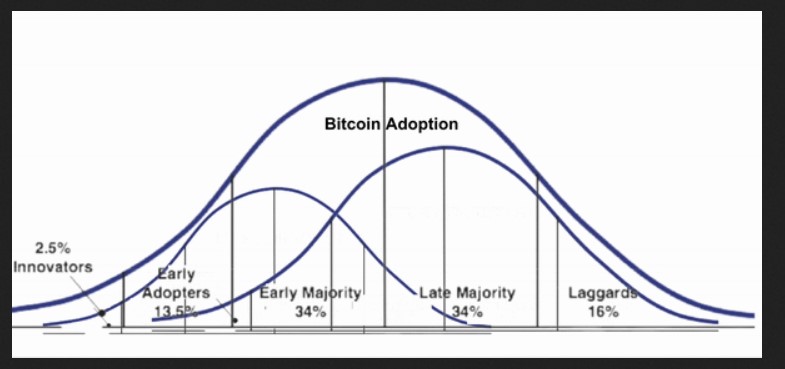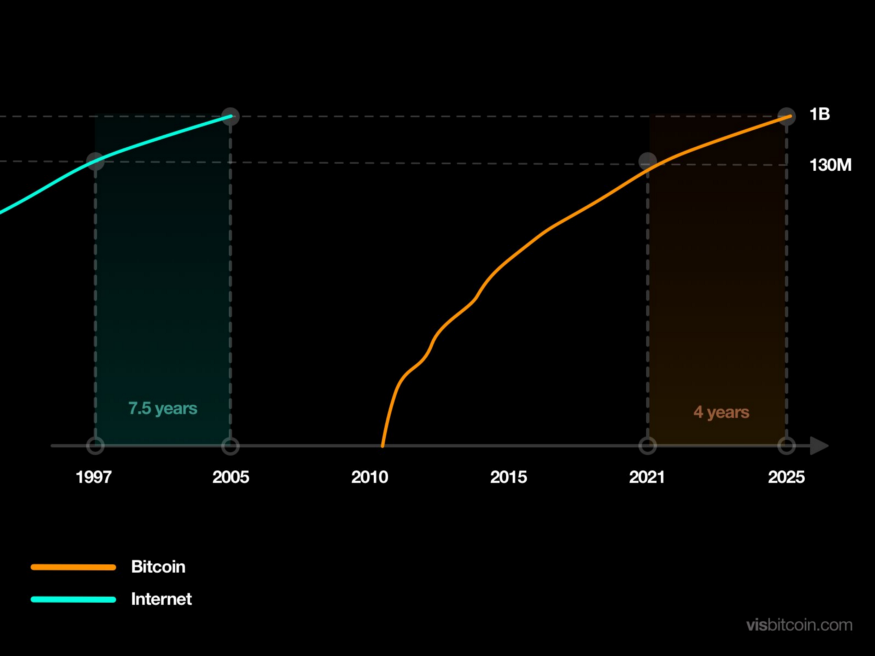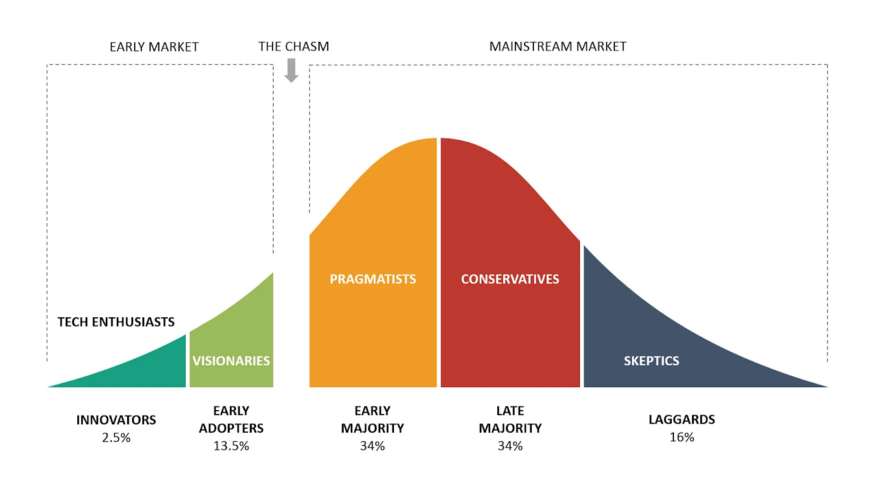Bitcoin has been growing its user base exponentially since its inception. As Bitcoinist previously reported, the BTC adoption rate has even surpassed that of the internet. Former Google employee Michael Levin has made a two-part investigation on the topic.
The first one explains how Bitcoin actually has two adoption curves, one for the network and another for the asset, BTC. The juxtaposition of these curves can be used to measure the aforementioned adoption rate. Levin believes that the first cryptocurrency by market cap has reached a critical point.
(…) these two adoption curves can occur concurrently with Bitcoin, the asset, kickstarting the adoption process which helps Bitcoin, the network, to ultimately send and receive value. (…) Furthermore, the overall Bitcoin adoption curve is reaching a critical moment. And, the interplay of these two curves will be critical for Bitcoin to reach the mainstream.

According to Levin, in 12 years BTC reached 135 million users with a projection of 1 billion by 2025. A similar prediction has been made by analyst Willy Woo. They both agree that Bitcoin will reach its 1 billion users milestone in half the time than the Internet.

Bitcoin Lightning Network And The Road To Greater Adoption
In the second part of his study, Levin argues that Bitcoin must go through a phase of adoption called Crossing the Chasm, based on Geoffrey Moore’s theory. This stage is one of the most critical because it divides the early adopters and the early majority, as seen below.

To successfully cross this gap, all technologies must have a “beachhead”. A specific section of the population targeted by a product with the objective of becoming the number one on this market share. Usually, the people that adopt this product are pragmatists and only want it to be useful for its specific use case.
Levin believes that the Lightning Network, used to send low-cost transactions on top of Bitcoin with greater scalability, could be the product to attack a beachhead. This solution can be leveraged by businesses and day-to-day people looking to improve a specific area of their lives.
The researcher claims that BTC presented just as an asset might not be compelling enough to be adopted by the early majority. In that way, he argues that the Lightning Network could meet this role and even surpass BTC’s network effect. He added:
Bitcoin has developed a superpower in this race to cross the chasm. The Lightning Network will help transition Bitcoin from the early adopters who mostly use Bitcoin, the asset, to the early majority who will use Bitcoin, the network.
For Bitcoin, Moore’s theory could be very literal. El Salvador was the first country on earth to grant BTC legal tender status. The initiative called “Bitcoin Beach”, based on the Lightning Network has spread the benefits of this second layer solution on this country. The government has acknowledged it with legislation.
El Salvador, according to data provided by Levin, is the 6th highest country by inbound remittance from the United States. Around 24% of the country’s GDP is obtained with remittances. Even if most don’t fully comprehend Bitcoin, many can leverage its benefit with a product designed to tackle a specific market share.
The potential for this model to be replicated in other countries is unlimited, as are the use cases that can be implemented with the Lightning Network. Levin adds:
With the Lightning Network and motivated entrepreneurs, Bitcoin, the network, unlocks the power of human ingenuity and optionality in its race to cross the chasm.
At the time of writing, BTC’s trades at $33,980 after been rejected on the key resistance mark of $34,500. In the short term, BTC must reclaim $35,000 or it could face more downside in the coming weeks.









